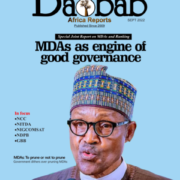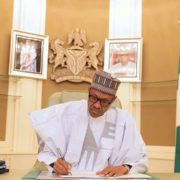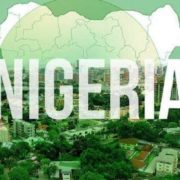By Engr. Gbolahan M.A. Alabi-Isama MS. Founder/CEO at Supercomafrica
Nigeria PSDI Score
Nigeria’s public service delivery landscape, while facing significant hurdles, shows promising signs of progress. A recent report from the African Development Bank (AfDB) places Nigeria among the fairly effective countries in Africa, with a Public Service Delivery Index (PSDI) score of 46.55. This figure not only surpasses the continental average of 45.39 but also edges out the West African regional average of 46.27, signaling a commendable effort in enhancing citizens’ capacities, opportunities, and choices for inclusive and sustainable development.
The Public Service Delivery Index Score for Nigeria
The PSDI evaluates how well public service systems enhance citizens’ and institutions’ capacities, opportunities, and choices to support inclusive and sustainable development. Nigeria’s performance highlights several key strengths. The nation scored highest in household perception (66.04), indicating a moderate level of satisfaction among Nigerian households with the quality of services received. This is a crucial indicator, reflecting the direct impact of public services on the daily lives of citizens.
Furthermore, energy and electricity emerged as a strong suit, scoring 62.53. This is a significant achievement, particularly given the challenges historically faced in the power sector. The report specifically highlights Nigeria’s rural electrification program, which has expanded electricity access, contributing to this positive ranking. While the exact figures for this expansion are not detailed, the current electricity access is estimated at 59.5% of the population, slightly above Africa’s average of 56.84% in 2021.
Other areas where Nigeria performed above average include food sovereignty (48.24), regional integration (46.56), and industrialization (40.35). These scores underscore the government’s ongoing efforts in critical sectors vital for national development and regional influence.
Despite these commendable achievements, the report also sheds light on persistent challenges that demand urgent attention. The power sector, while scoring high in delivery, still grapples with issues like low distribution, leading to erratic power supply that costs the economy approximately 2% of GDP annually. Furthermore, electricity tariffs remain below cost-recovery levels, hindering sustainable investment and infrastructure development.
Food security and economic diversification continue to be top government priorities, as evidenced by initiatives like the National Livestock Transformation Plan (2019–2028) and the National Agricultural Technology and Innovation Plan (2021–2024). Nigeria’s vast potential in fisheries and the blue economy remains largely untapped, offering significant opportunities to bolster agriculture and food security.
The water sector also presents a significant challenge. Despite adequate water resources, low investments, dilapidated infrastructure, low tariffs, and poor governance mean that few of Nigeria’s urban water utilities provide reliable services. These issues are compounded by a lack of autonomy among some state water agencies.
Transportation networks are another area requiring substantial improvement. The country’s Revised National Integrated Infrastructure Master Plan (2020–2043) aims to restore 70% of federal and state roads by 2023 and 100% by 2043, alongside creating a high-speed rail network. These ambitious targets are crucial for facilitating trade and economic activity, positioning Nigeria as a regional economic hub.
The Impact of Recent Reforms: President Tinubu’s Bold Steps
The report implicitly touches upon the profound impact of recent policy shifts under President Bola Ahmed Tinubu’s administration. The removal of the decades-long fuel subsidy and the reduction of intervention in currency exchange rates are significant, albeit painful, reforms. These policies have rapidly driven up the cost of living and heightened the poverty rate, leading to public concern, strikes, and demonstrations.
President Tinubu’s reforms, particularly the fuel subsidy removal and currency exchange rate adjustments, represent a bold, albeit difficult, attempt to stabilize Nigeria’s economy for long-term growth. These are critical steps towards fiscal sustainability and attracting foreign investment, as the previous policies were economically unsustainable and prone to corruption.
While the immediate impact on the cost of living is undeniably severe and has caused significant hardship for many Nigerians, these reforms are often a necessary, albeit painful, precursor to genuine economic recovery. The protests and public outcry are a natural response to the immediate economic strain, and it is imperative for the government to implement robust social safety nets and transparent communication strategies to cushion the blow for vulnerable populations.
The success of these reforms will hinge on the government’s ability to re-invest the savings effectively into critical infrastructure, social services, and productive sectors, thereby demonstrating tangible benefits to the populace in the medium to long term. Without this strategic re-investment and visible improvements in areas like power, water, and transport, public trust will erode. It’s a high-stakes gamble, but one that many economists argue is essential for Nigeria to unlock its full potential and move beyond a rentier economy. The true measure of these reforms will be their capacity to foster a more diversified, resilient, and equitable economy for all Nigerians.





















